The DOMINO project is at the forefront of connecting microbiome science, food systems, and health in Europe. Recent activities highlight how DOMINO is driving innovation and fostering collaboration:
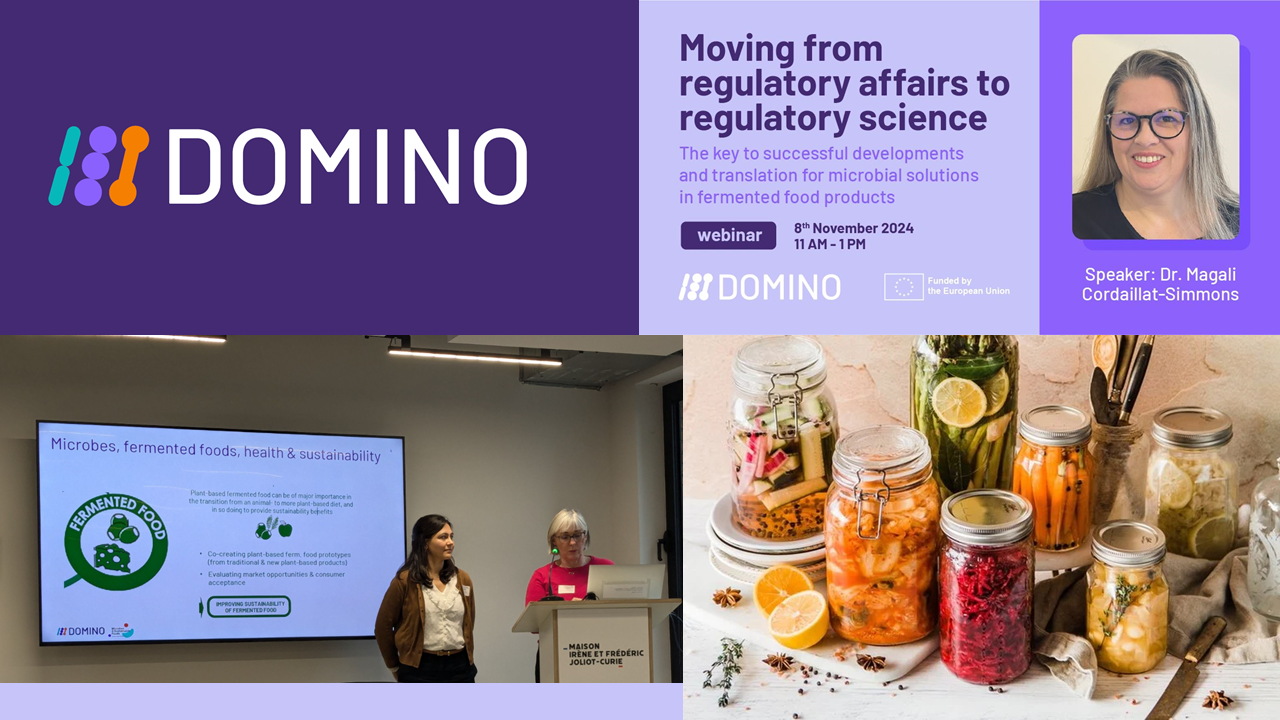
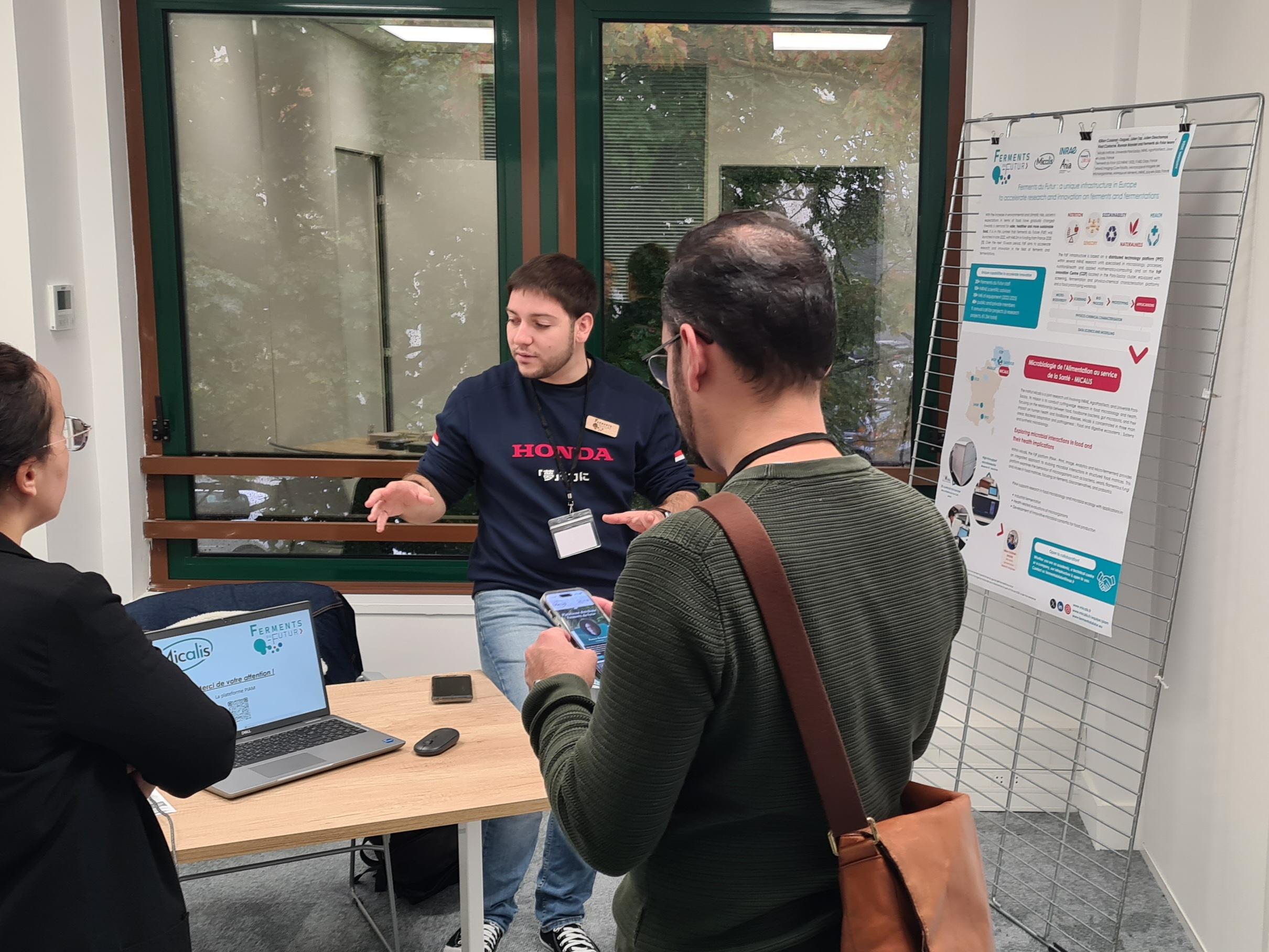
At the recent opening of the Ferments du Futur Innovation Center (CI2F) in Paris-Saclay, Killian shared insights about how our new plateform PIAM (Print, Image, Analytics and Micro-fermenters) housed in MICALIS supports innovation in industrial fermentation, microbial consortia development, and health-related applications.
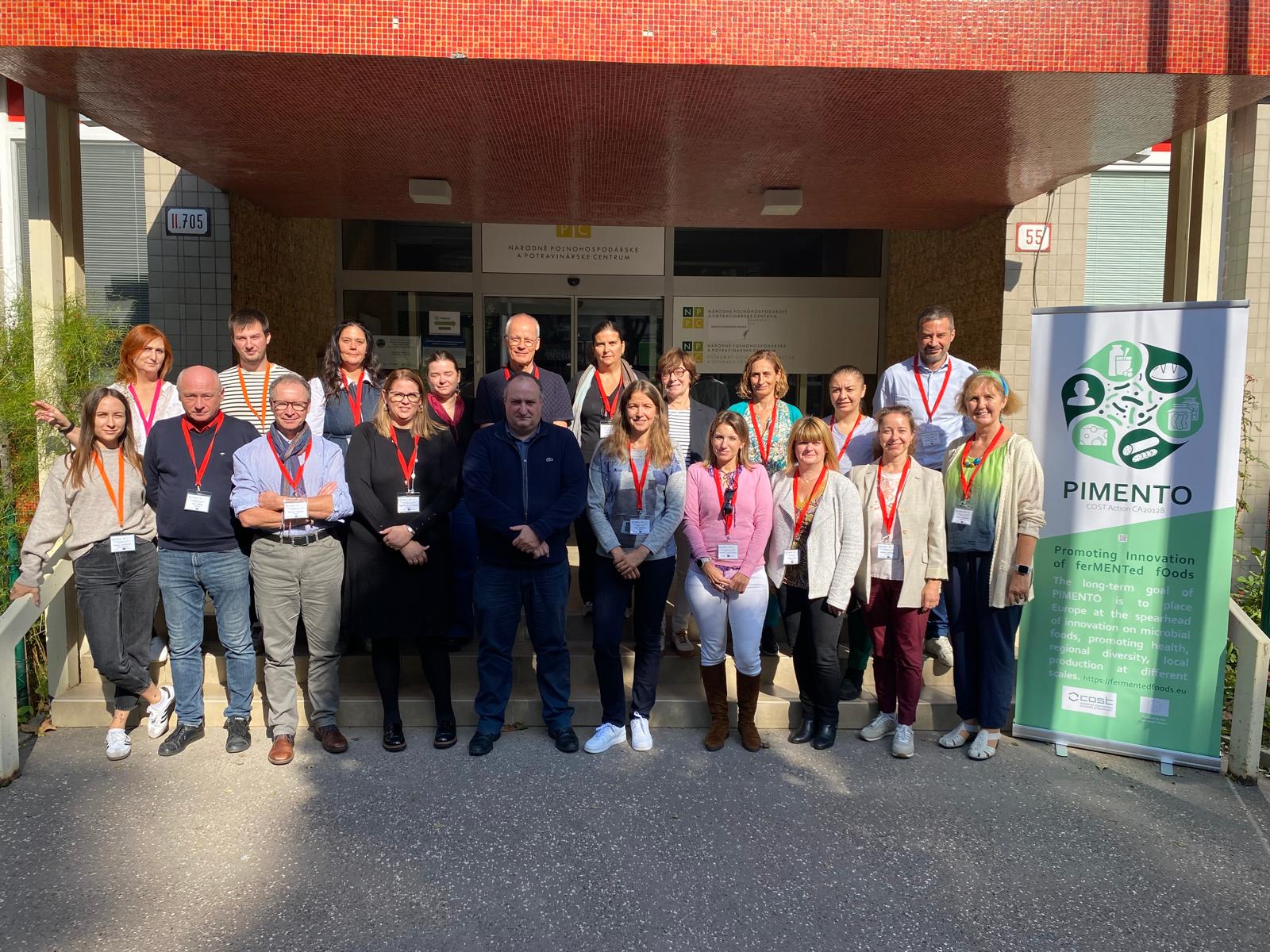
From September 16 to 19, Bratislava hosted the latest COST PIMENTO workshop, bringing together key members of the management committee, core group, and working groups. This fruitful event, organized by the National Agricultural and Food Centre (Food Research Institute), provided an opportunity to discuss the future direction of fermented foods research.
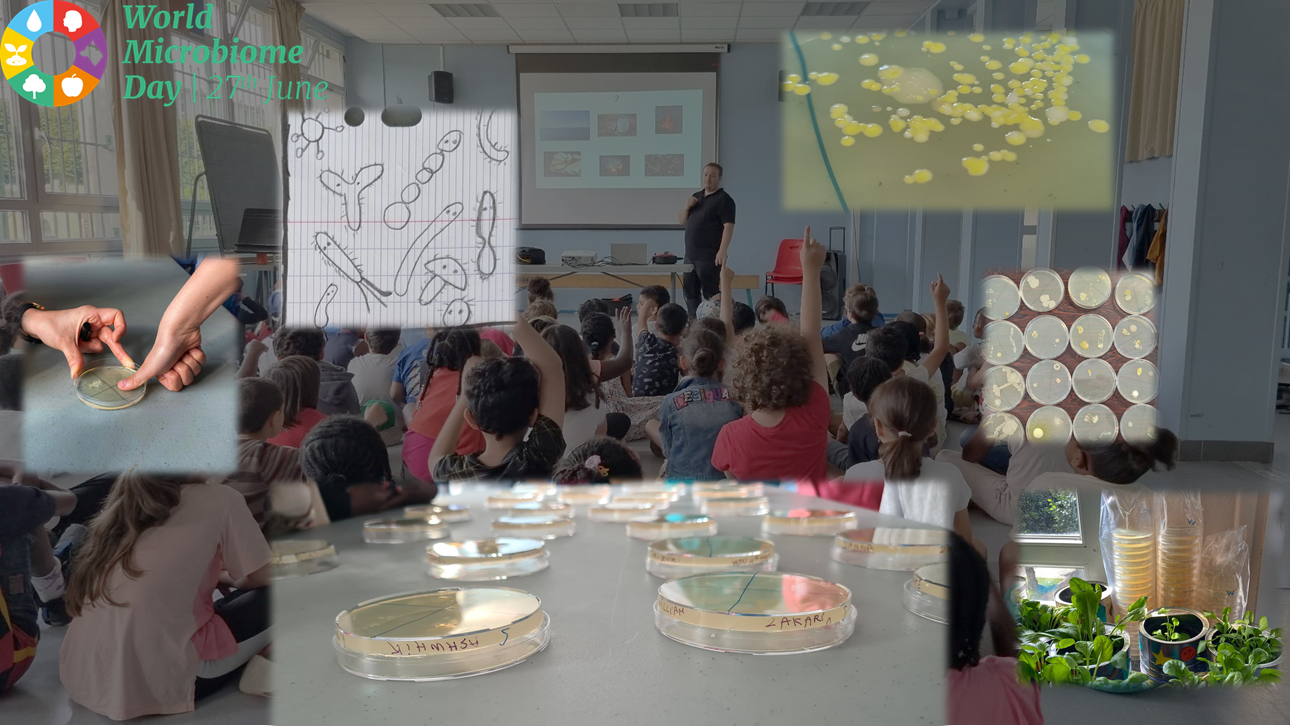
In a unique venture celebrating World Microbiome Day, we organized a series of engaging microbiology workshops at Toulouse-Lautrec Primary School in Vaucresson and another primary school in the southern suburbs of Paris. These workshops aimed to teach children about microbiomes, fermented foods, and the importance of gut health through interactive and hands-on experiences.
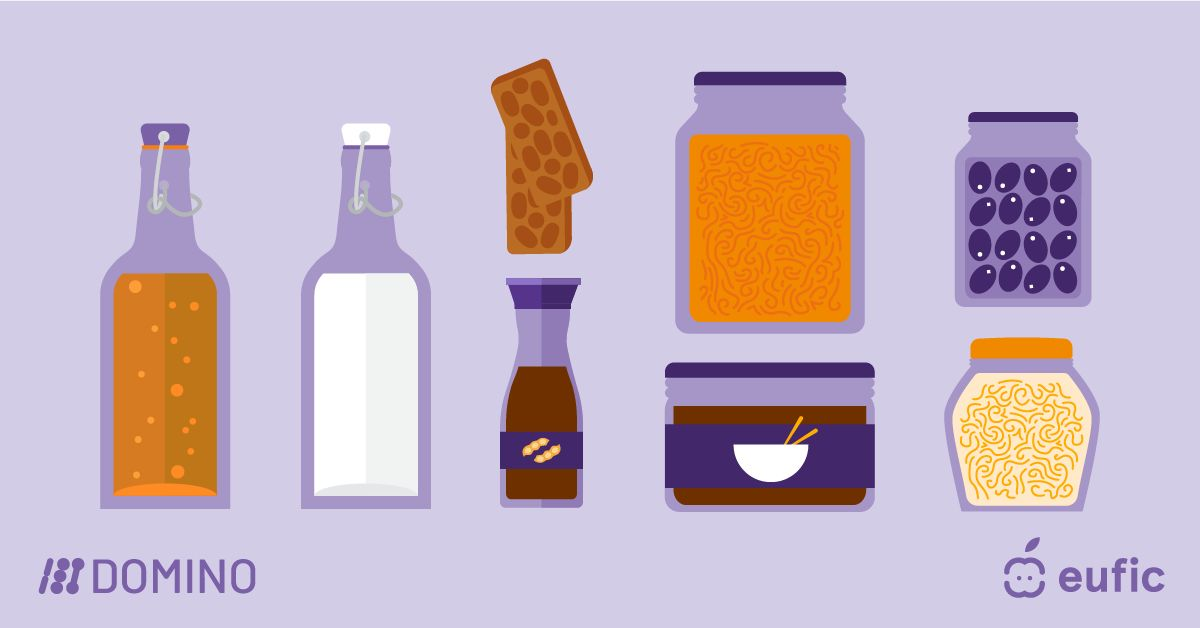
On #WorldMicrobiomeDay, Domino with EUFIC (European Food Information Council) has a mission to disseminate food microbiome science publicly.
Latest Posts
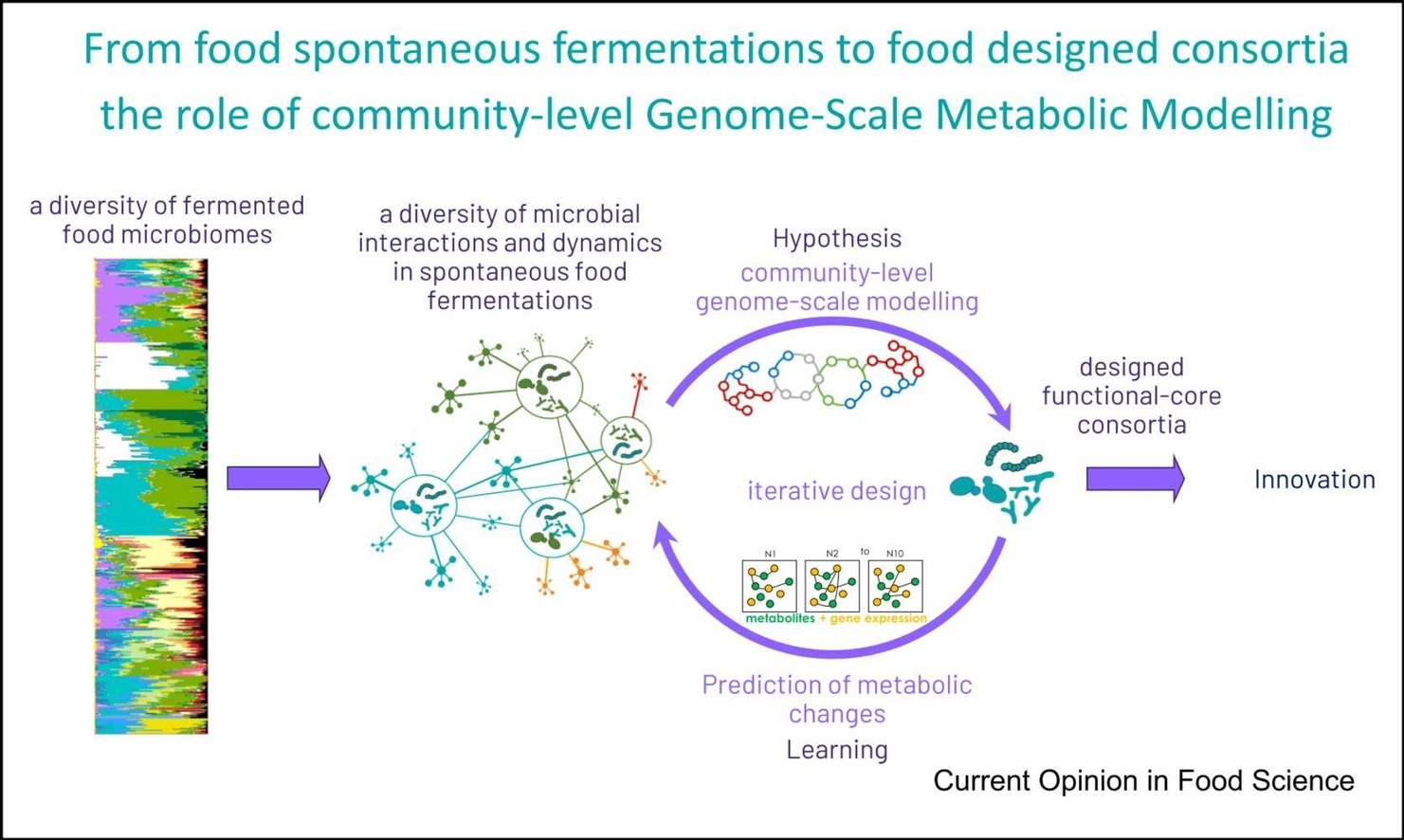
Our new article entitled “Microbiome metabolic modeling as a tool for innovation in fermented foods” has been published in in Current Opinion of Food Science1.
-
Elham Karimi, Julien Tap, Marie-Christine Champomier-Vergès, Stéphane Chaillou. Microbiome metabolic modeling as a tool for innovation in fermented foods. Current Opinion of Food Science. 2025 ↩
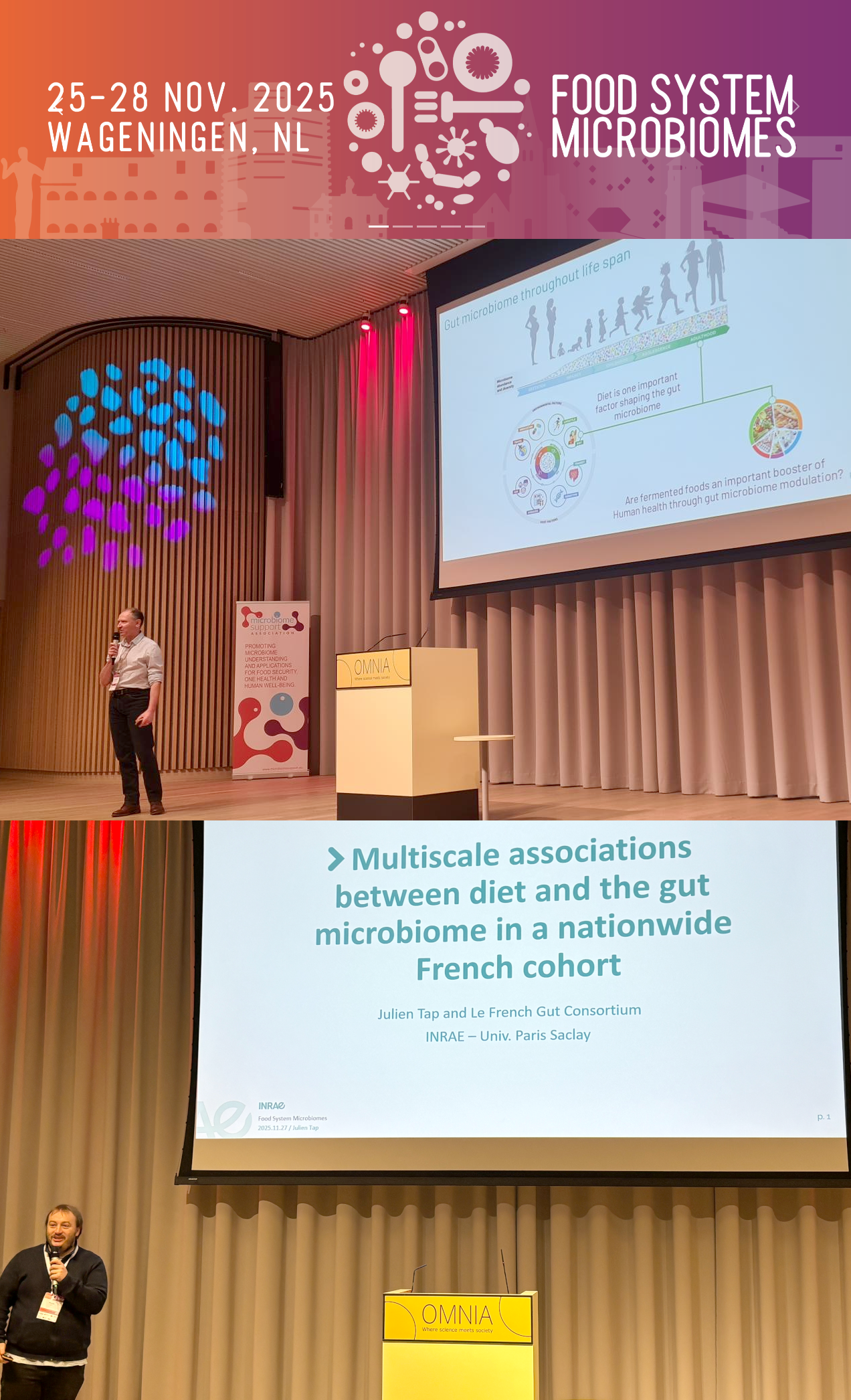
On Thursday 27 November, the FME lab took part in the Food System Microbiomes Conference in Wageningen during the session dedicated to the connections between microbiomes, nutrition and health. The session was co-chaired by Stéphane Chaillou (INRAE, Micalis) and Prof. Christophe Courtin (KU Leuven), and provided an opportunity to showcase advances from two major European projects: DOMINO and HealthFerm.

A new scoping review published in Frontiers in Nutrition1 as part of the COST Action PIMENTO initiative provides a comprehensive assessment of what is currently known about the health effects of fermented foods in specific human populations. This work reflects a substantial collective effort. We conducted an extensive and rigorous screening of the scientific literature, reviewing and selecting studies across many categories of fermented foods and health outcomes.
-
Humblot Christèle, Alvanoudi Panagiota, Alves Emilia, Assunçao Ricardo, Belovic Miona, Bulmus-Tuccar Tugce, Chassard Christophe, Derrien Muriel, Karagöz Mustafa Fevzi, Karakaya Sibel, Laranjo Marta, Mantzouridou Fani Th, Rosado Catarina, Pracer Smilja, Saar Helen, Tap Julien, Treven Primož, Vergères Guy, Pertziger Eugenia, Savary-Auzeloux Isabelle, A scoping review of the health effects of fermented foods in specific human populations and their potential role in precision nutrition: current knowledge and gaps. Frontiers in Nutrition. 2025 doi:10.3389/fnut.2025.1650633 ↩